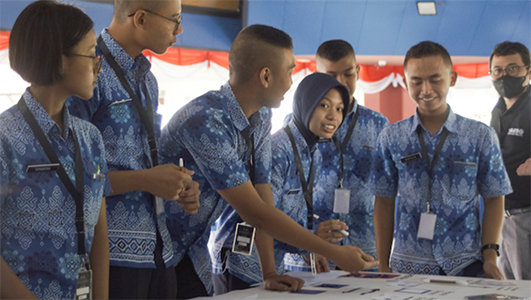

Shimaditya Nuraeni
"In general, Spivack (2021) describes the education system consisting of a number of elements such as people in certain roles (eg teachers, students, and parents), organizations (schools, ministries), and the environment (classrooms, teaching materials). This element interacts with each other through relationships: parents send their children to schools, teachers/lecturers teach students/students, teachers/lecturers are employed by schools, schools are managed by the ministry, and so on. The functions of each component are measured on an output such as the achievement of basic skills, the minimum amount of school time, and others. The education system that is considered to have unsatisfactory performance is then completed without looking deeper (larger system), only limited to overcoming the symptoms that appear - such as poor teacher quality, low level of teacher attendance, high school dropout rates, learning evaluation results the bad one. This has an impact on teaching patterns that provide solutions to overcome short -term symptoms and interventions, not in a deeper understanding of diagnostic about the root of the problem. The solution approach to symptoms is a problem, especially for developing countries, one of which is Indonesia where learners tend to master conceptuals but do not touch the level of practice/ implementation (Pritchett & Viengo, 2021; Belafi, HWA, & Kaffenberger, 2020). Especially in the modern world, where everything is interrelated, and the ability to have a problem solving, individuals must have a strong reasoning ability in understanding complex systems in a practical and useful way. Preparing students adequately to overcome problems related to complex systems early is considered very important to help obtain the ability of reasoning to the system. Furthermore, equipping students with critical and systemic thinking skills is considered important to contribute to problems that occur in the environment (Joyner, Majerich and Goel 2013)."